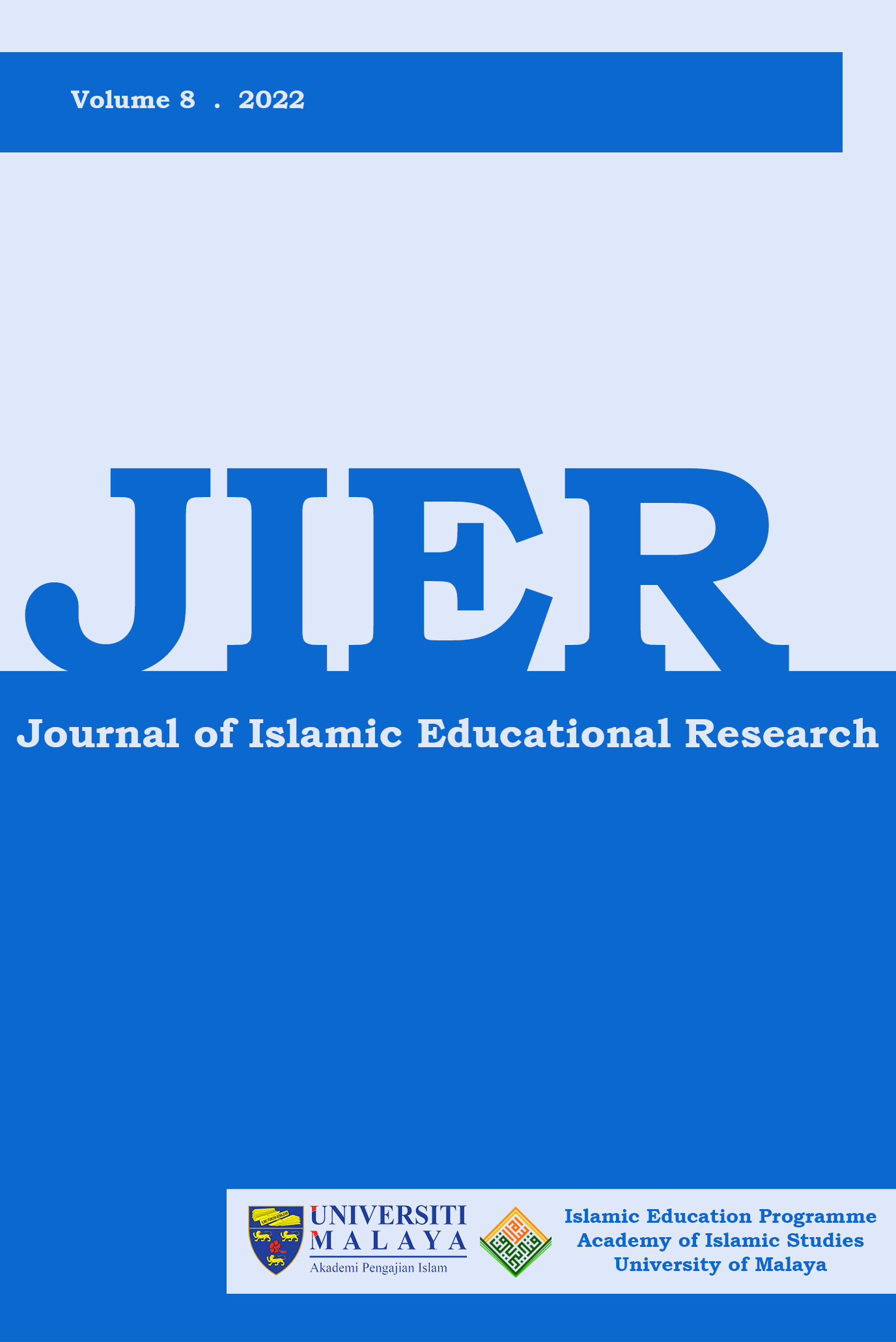Teachers’ Attitudes on Information and Communication Technology Tools for Teaching Arabic Language in Ilorin-South Secondary-Schools
DOI:
https://doi.org/10.22452/jier.vol8no2022.5Keywords:
Attitude, ICT, Arabic, Teaching, TeachersAbstract
Information and Communication Technology (ICT) has become an indispensable tool, and therefore permeated all aspects of human life. It is against this backdrop that the researcher examined secondary school teachers’ attitudes on ICT tools for teaching Arabic Language in Ilorin South Local Government Area. Descriptive research method was adopted for this study. The population for this study comprised all secondary school Arabic teachers in Ilorin South Local Government Area while the target population is the Arabic teachers at SS I to SS III. Purposive sampling technique was used to sample 150 teachers as respondents which constituted the study sample. A researcher designed checklist was used for the instrument. The research question was answered with percentage. Finding of this study revealed that: Attitude of secondary school Arabic teachers towards the use of ICT tools for teaching in Ilorin South Local Government Area is positive; Based on this finding, it was concluded and recommended that government at all levels should assist in the provision of more modern Information and Communication Technology tools in secondary schools, these include satellite broadcast, digital player computer and PowerPoint and so on, also, the ministry of education should be inspecting and monitoring the use of available Information and Communication Technology tools in the schools more especially its usage in teaching Arabic language, teachers of Arabic should be trained with the requisite Information Technology (IT) skills to manage resources effectively and assist students in their quest for information needed to meet their diverse needs among others.
Downloads
Downloads
Published
How to Cite
Issue
Section
License
The published manuscript shall be a copyright of the Islamic Education Programme, Academy of Islamic Studies, University of Malaya, Kuala Lumpur, Malaysia. The published manuscript would not represent the stand or opinion of the Advisory Board, Editorial Board, Co-Editorial Board and the Management Team of Journal of Islamic Educational Research (JIER), or the Islamic Education Programme, Academy of Islamic Studies, University of Malaya.
Note: This is an open access journal which means that all content is freely available without charge to the user or his/her institution. Users are allowed to read, download, copy, distribute, print, search, or link to the full texts of the articles in this journal without asking prior permission from the publisher or the author. This is in accordance with the BOAI definition of open access.






